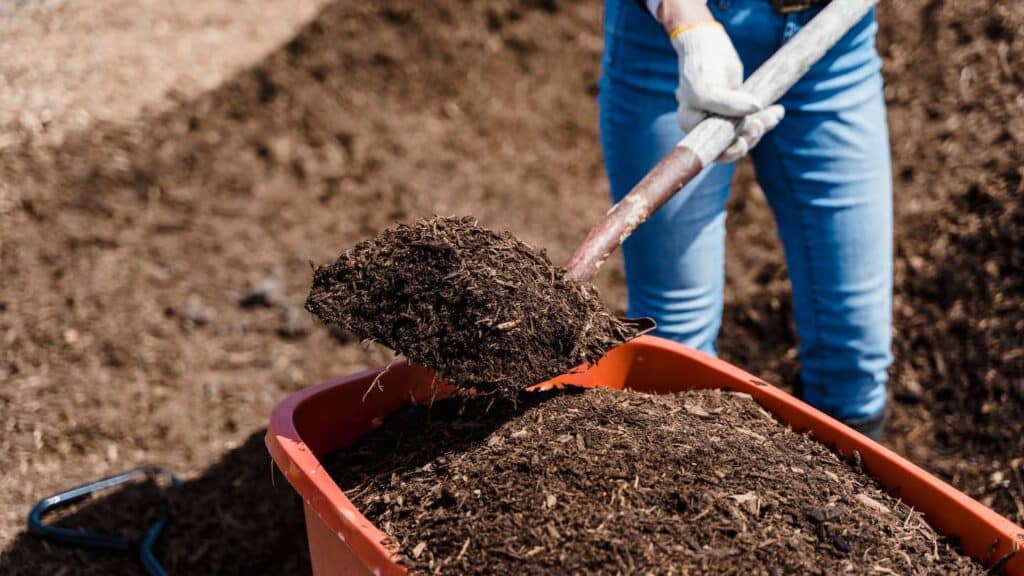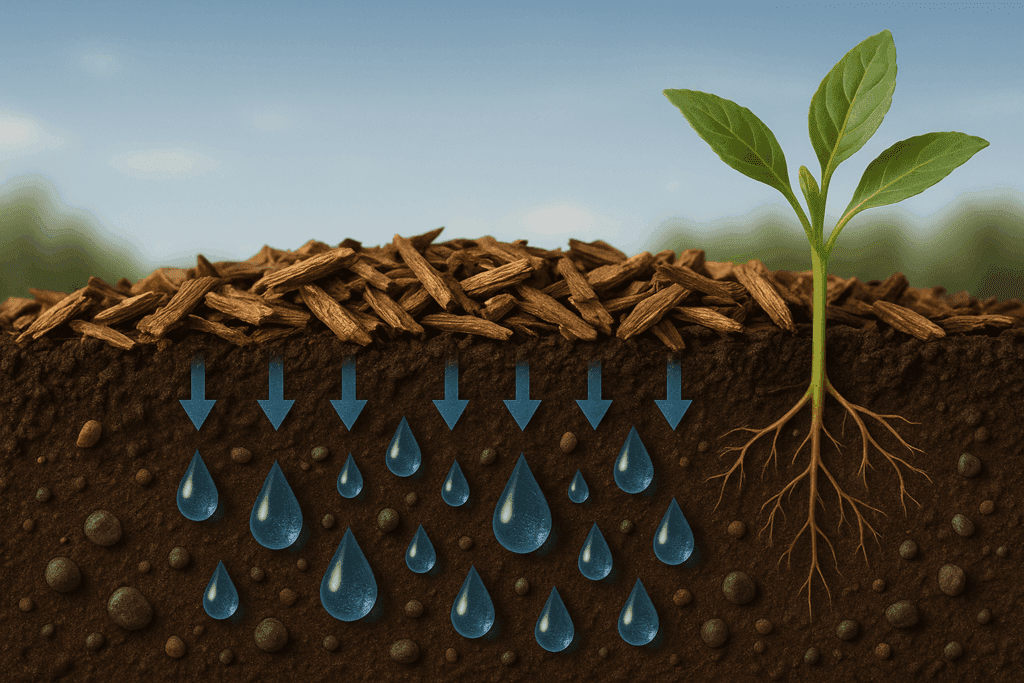Mulch is a simple way to help your garden stay moist. It covers the soil and keeps water inside. This helps plants grow better. If you want healthy plants, mulch is very useful.
What Is Mulch?
Mulch is a layer of material placed on the soil surface. It can be made from many things. Some common types are:
- Wood chips
- Leaves
- Grass clippings
- Straw
- Bark
- Compost
Mulch looks nice and helps plants in many ways.
Why Use Mulch for Moisture?
Water is very important for plants. But water can leave the soil quickly. This happens because of sun and wind. When soil dries, plants get thirsty. Mulch stops this problem.
Mulch keeps water in the soil. It stops water from evaporating. This means the soil stays wet longer. Plants can drink water when they need it.
Benefits Of Mulch For Moisture
| Benefit | How It Helps |
|---|---|
| Keeps Soil Moist | Reduces water loss from the soil surface |
| Reduces Watering Needs | Soil stays wet longer, so you water less |
| Protects Plant Roots | Keeps roots cool and moist during hot days |
| Prevents Soil Cracking | Maintains soil structure by holding moisture |
| Stops Weed Growth | Weeds dry out and don’t grow well |
How Mulch Helps Keep Moisture
Mulch works like a blanket for the soil. It blocks the sun and wind. This stops the water from drying out quickly. The soil stays cool and wet.
When it rains, mulch helps water go into the ground. It stops water from running away. This means more water goes to the plants.
Mulch Saves Water
Using mulch means you need to water less. This saves water and time. It also helps in places where water is not easy to get.

Credit: craineprojects.ca
Types of Mulch to Use for Moisture
There are two main types of mulch:
- Organic Mulch: Made from natural materials like leaves or wood.
- Inorganic Mulch: Made from materials like plastic or stones.
For moisture, organic mulch is best. It holds water and also adds nutrients to soil as it breaks down.
Common Organic Mulch Options
- Wood Chips: Good for trees and shrubs.
- Straw: Light and easy to spread in vegetable gardens.
- Leaves: Free and good for flower beds.
- Grass Clippings: Use thin layers to avoid bad smells.
- Compost: Adds moisture and nutrients at the same time.
How to Use Mulch Correctly
Using mulch is easy, but there are some tips to follow.
- Clean the area by removing weeds and old mulch.
- Water the soil before putting mulch on top.
- Spread mulch evenly around plants.
- Use about 2 to 4 inches of mulch for best results.
- Keep mulch a few inches away from plant stems and tree trunks.
These steps help mulch work well and keep plants safe.
When To Mulch
The best time to add mulch is in spring or fall. Mulch protects plants from hot sun and cold weather. It keeps soil moist all year.
Common Mistakes to Avoid
Sometimes people use mulch wrong. Here are some mistakes to watch out for:
- Putting too much mulch can stop water from reaching roots.
- Mulch touching plant stems can cause rot or pests.
- Using mulch that is not clean may bring weeds or diseases.
- Not watering before mulching can leave plants dry inside.
Fixing these mistakes helps plants stay healthy.
How Mulch Helps Different Plants
Mulch works well for many types of plants:
- Vegetables: Keeps soil moist and cool for growing.
- Flowers: Helps keep roots wet and stops weeds.
- Trees and Shrubs: Protects roots and holds moisture deep.
- Lawns: Stops water from evaporating in dry weather.
Each plant benefits from mulch in its own way.

Credit: mulchpros.com
Mulch and Soil Health
Mulch does more than keep moisture. It helps soil stay healthy. Organic mulch breaks down and adds food to soil. This makes soil soft and full of life.
Healthy soil holds water better. It also helps plants fight diseases and grow strong roots.
How Mulch Saves You Money
Mulch saves water by keeping soil wet longer. You do not need to water plants often. This lowers your water bills. It also saves time spent on watering.
Mulch helps plants grow better. Healthy plants need less fertilizer and care. This saves money on garden supplies.
Environmental Benefits of Mulch
Mulch helps the environment too. It reduces water use, which saves natural resources. Mulch also keeps soil from washing away during rain.
Using organic mulch recycles garden waste. Leaves and grass clippings become useful again instead of trash.
Summary: Why Use Mulch for Moisture?
Mulch is a smart way to keep soil wet. It protects plants from heat and wind. It lowers how often you water your garden. Mulch also helps soil stay healthy and full of nutrients.
Using mulch is simple and cost-effective. It benefits your plants, your wallet, and the environment. Choose the right mulch and use it well. Your garden will thank you.
Quick Tips for Using Mulch
- Use 2-4 inches thick layer.
- Keep mulch away from stems.
- Water soil before mulching.
- Choose organic mulch for moisture.
- Refresh mulch every year.
Start using mulch today. Watch your plants stay green and healthy with less work.
Frequently Asked Questions
How Does Mulch Help Retain Soil Moisture?
Mulch acts as a barrier. It reduces evaporation. This keeps soil moist longer.
What Types Of Mulch Are Best For Moisture Retention?
Organic mulches like wood chips and straw are effective. They lock in moisture well.
How Thick Should I Apply Mulch For Moisture?
A 2 to 3-inch layer is ideal. This ensures proper moisture retention.
Can Mulch Improve Plant Health?
Yes, it can. Mulch keeps roots cool and moist. This promotes healthy plant growth.
5 min read

